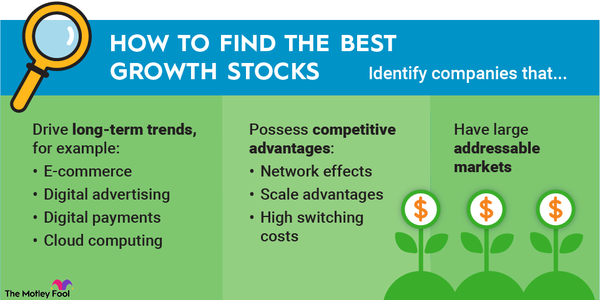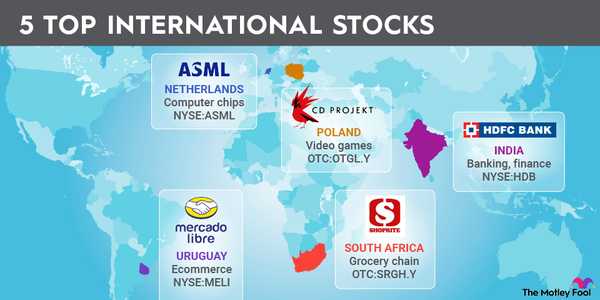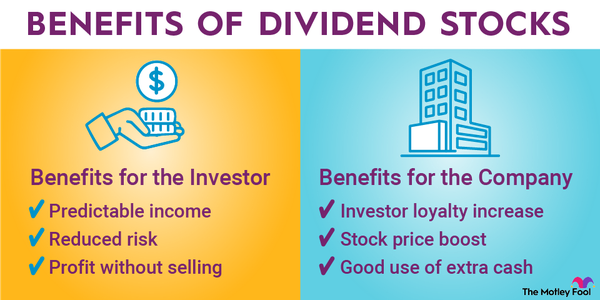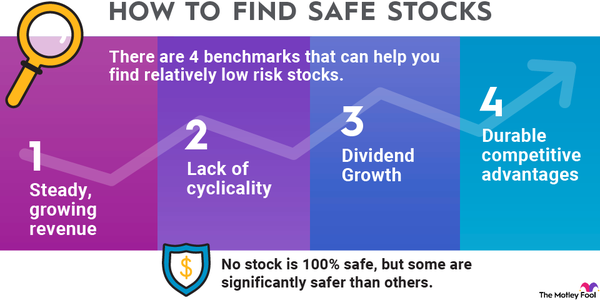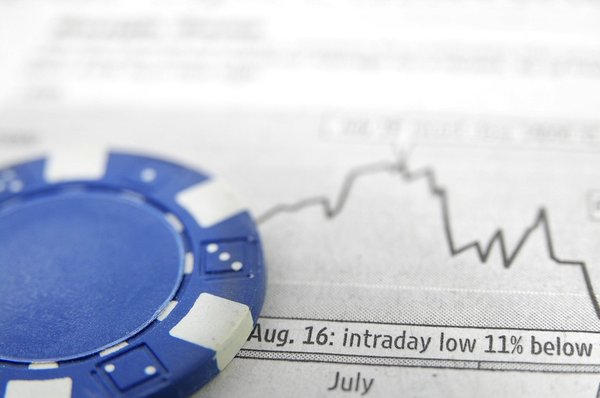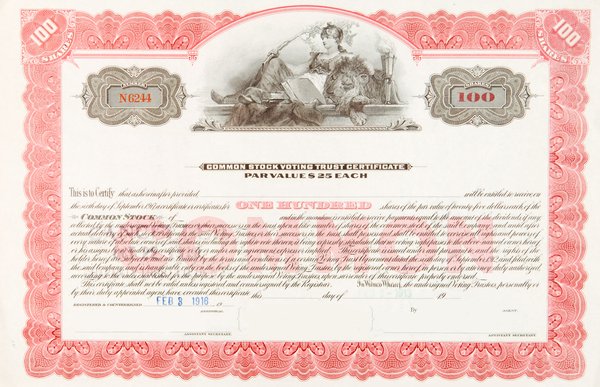Everybody likes a bargain, and stocks with low share prices certainly seem like bargains. With some high-priced stocks costing hundreds or even thousands of dollars for a single share, buying penny stocks -- stocks with share prices of less than $5 -- can be a tempting way to try to grow your money quickly. However, penny stocks generally have a well-deserved reputation for burning investors.
It is possible to achieve strong returns by investing in young companies with small valuations or depressed stock prices, but typically it's better to invest only in companies that are larger and have less speculative valuations. Any risky stock buys should at least be limited to shares of companies that generate meaningful revenues -- or are pursuing clear, realistic paths to growth.
We'll delve into how to identify cheap stocks, as well as name some individual stock picks that have significant potential. But first, let's take a closer look at penny stocks and why they have such a poor reputation.
Can you make money on penny stocks?
Can you make money on penny stocks?
It is possible to make money with penny stocks. Then again, it’s technically possible to make money with any type of stock. Successful investors usually focus on the potential for their stock picks, regardless of price, to gain value over the long term.
There are plenty of good reasons to invest in small companies. Investors who buy shares in fast-growing companies that are still small capture a lot more share price upside than those who wait to buy stock until the companies have grown into giants.
However, penny stocks are almost never the bargains that they appear. Their shares are cheap -- for good reason. At best, penny stock companies are unproven and small, with dubious long-term prospects for success; at worst, the penny stocks are vehicles that con artists use to take advantage of unsuspecting investors.
Many penny stocks are traded so cheaply because the businesses behind them aren't worth much more than that.Tom and David Gardner, Co-founders, The Motley Fool
Penny stock investors often erroneously think that a low share price indicates that the company has greater potential to grow than those with higher share prices. In reality, the valuation of a company -- also known as its market capitalization -- is determined by two factors:
- The stock price.
- The number of shares outstanding.
The second factor is crucial because the number of shares issued is entirely up to the company. One million shares outstanding at $100 per share is worth exactly as much as 100 million shares outstanding at $1 per share. But a company with a $100 share price very likely has much stronger growth potential than a company with a $1 share price.
Regulatory authorities know that penny stocks are highly tempting to many investors, so they're quite explicit about listing their dangers. As the U.S. Securities and Exchange Commission warns, "Investors in penny stocks should be prepared for the possibility that they may lose their whole investment." That's technically possible with any stock investment, but the total loss of value is far more likely with penny stocks.
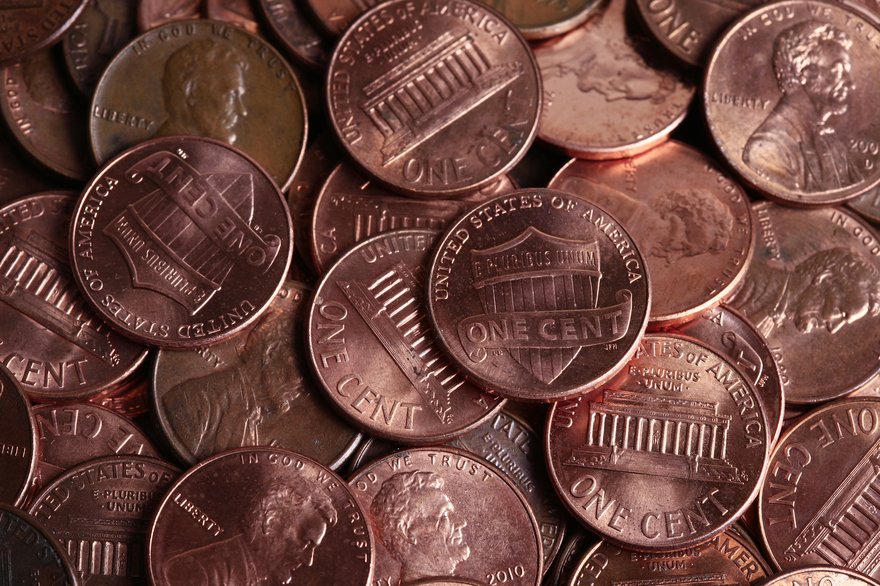
My foray into penny stocks turned into an investing horror story that I was reminded of every time I looked at my brokerage statement.Reuben Brewer, contributor, The Motley Fool
Risks of trading penny stocks
Risks of trading penny stocks
Penny stocks come with substantial risks compared to those of ordinary stocks. The risks include the following:
- Penny stock companies are tiny. Most publicly traded companies are large businesses that clearly demonstrate their value, which typically ranges from hundreds of millions of dollars to $1 trillion or more. By contrast, the companies that issue penny stocks are generally tiny, with even the largest penny stock company typically valued at much less than $100 million.
- Penny stock companies are unproven. It's rare for companies that you've already encountered in your daily life to be among the ranks of penny stocks. Rather, penny stocks are usually those of less-established companies that haven't proven they can endure and succeed.
- Penny stocks often don't trade on major stock exchanges. While penny stocks can be listed by the New York Stock Exchange (NYSE) or the Nasdaq Composite Index (NASDAQINDEX:^IXIC), that's usually not the case. Instead, penny stocks typically trade over the counter, or OTC. The companies whose stocks trade in the OTC market are subject to less rigorous reporting requirements than those included in the NYSE and Nasdaq. Efficiently buying and selling shares of penny stocks can also be comparatively difficult because stocks that are less frequently traded are more illiquid, meaning that wide ranges between bid and ask prices are common.
- Penny stocks are sometimes the targets of pump-and-dump schemes. Con artists often target penny stock investors by promoting a penny stock company as the next hot investment. Building hype about a penny stock can pump up its share price, and the price increase itself can be misleadingly cited as evidence of the company's success. After the stock price increases, the scammers typically sell (dump) their shares for a profit and stop promoting the stock. The share price then usually declines, causing large losses for the late-arriving investors who believed the hype.
Better cheap investments than penny stocks
Better cheap investments than penny stocks
Fortunately, there are better alternatives to penny stock investing. Thanks to the rise of fractional share trading, which enables purchases of less than one share, you can often invest in stocks for which the share price is extremely high. For instance, a single share in a company like Microsoft (MSFT 0.23%) costs hundreds of dollars, but you can buy any fraction of a share and still gain portfolio exposure to the stock's future performance.
Moreover, high-quality companies can have low share prices. All of these companies' share prices were less than $10 in 2023:
- Sirius XM Holdings (SIRI -0.94%) operates a successful satellite radio network with millions of subscribers. Its stock price has been less than $10 for much of its history, but its prospects are bright. Mergers and the rise of in-vehicle entertainment systems have helped stoke business growth.
- Ubisoft (UBSFY 0.47%) is a developer and publisher of video games known for hit franchises including Assassin's Creed, Rainbow Six, and Ghost Recon. The company isn't one of the strongest players in the gaming industry, but its valuation has been pushed down to levels that leave room for explosive upside. If Ubisoft can deliver a single new successful series or major breakout title, the stock could see a renewed surge of bullish momentum.
- Himax Technologies (HIMX -0.19%) designs semiconductors that regulate the colors displayed by pixels on screens. In addition to smartphones, tablets, and TVs, the company has big growth opportunities in the automotive market. It could also score big wins if demand for virtual-reality and augmented-reality headsets increases.
These are just a few of the stocks that you can buy without spending a lot for each share. Investors who are willing to assume high risk to potentially achieve high returns have plenty of options that offer better risk-reward dynamics than penny stocks.
Related investing topics
How to invest in penny stocks (if you're dead-set on doing so)
How to invest in penny stocks (if you're dead-set on doing so)
If we can't persuade you not to invest in penny stocks, then you should at least follow these basic precautions to protect your portfolio:
- Determine the maximum dollar amount that you're willing to lose. Figure out how much money you can afford to lose and then limit yourself to investing that amount. If your investment goes under -- as many investments in penny stocks do -- then you won't be in real financial trouble.
- Get a second opinion. Be sure to conduct independent research on the penny stock companies that interest you. Too often, investors rely solely on information from the company itself or from stock promoters, leaving them prey to fraudulent schemes. If you can't actually find any information from third-party sources, that by itself is a warning sign that a pump-and-dump scheme may be occurring.
- Don't pay commissions if you can avoid them. Make sure the brokerage firm you use doesn't charge trading commissions. Many brokers have gone commission-free on stock trades, but with a catch -- commissions or special fees are still assessed by some brokers for stocks with share prices below a certain level.
- Determine the price you're willing to pay. Due to relatively low trading volume, penny stocks can have substantial bid-ask spreads. If the ask price is significantly more than you're willing to pay, don't rush to meet it. Penny stocks tend to be highly volatile, and there's a fair chance that your bid will be met if you are patient.
- Be realistic with your expectations. Finally, understand that almost no penny stocks make money over the long term. Most of the rare profits that penny stock traders generate arise from short-term moves that are based on emotion rather than the company's stock or business fundamentals.
Penny stocks represent a volatile and risky part of the stock market, and many investors have suffered big losses trying to invest in them. With so many well-established companies available to own, there's little reason to settle for the highly risky companies that issue penny stocks.










